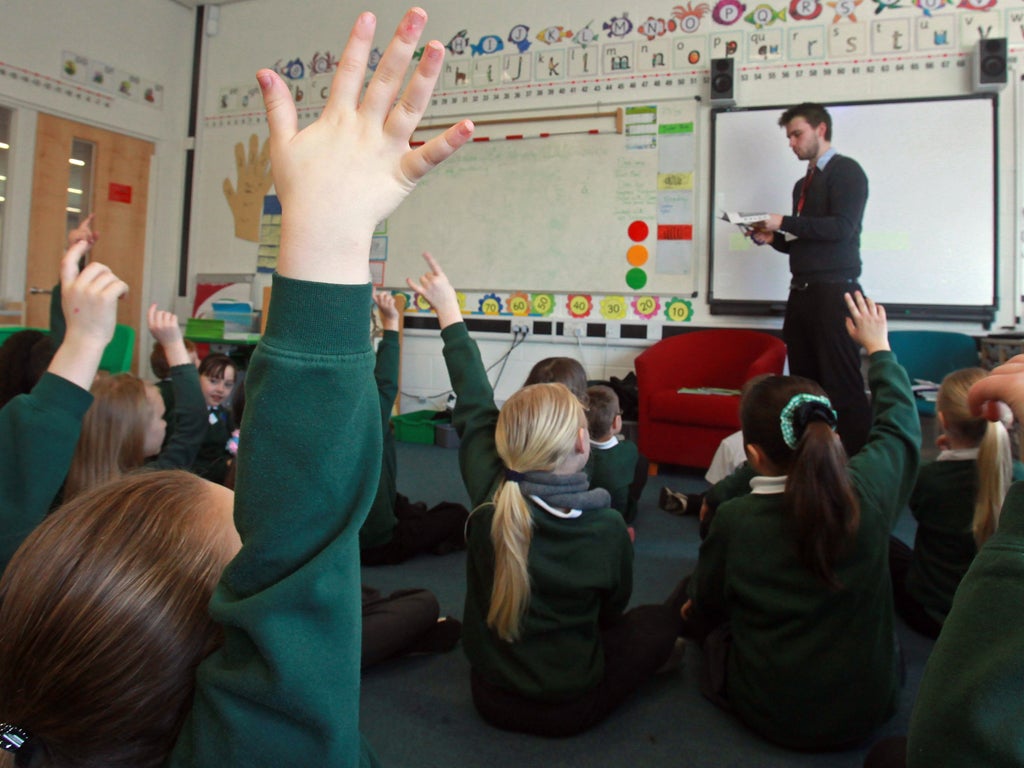One eighth of primary schools fall short of government literacy and numeracy targets

One in eight primary schools have failed to reach a minimum government target for getting 60 per cent of their pupils to read, write and add up properly by the age of 11.
In all, 1,310 schools are today being singled out for failing to make enough progress towards getting three out of five pupils to reach the required standard in maths and English national curriculum tests for 11-year-olds.
The figures, disclosed in primary school league tables published today, means they are being threatened with a takeover by a neighbouring successful school or academy sponsor.
The tables also show that one in ten boys leave primary school with the reading age of just a seven-year-old.
The percentage reaching the expected level in both English and maths is 74 per cent one percentage point higher than last year. However, the proportion going on to a higher level is down eight percentage points in reading.
The figures compare with just 962 last year – although that was distorted as a result of one in four schools boycotting the tests as a result of an industrial dispute.
As a first step, ministers aim to concentrate on 150 schools who have consistently failed to reach the “floor” for the past five years.
Schools Minister Nick Gibb said: “We are taking action to end years of chronic under-performance .
“The seven years of primary school are key to establishing the building blocks of a child’s education, particularly in reading, writing and arithmetic.”
Ministers plan that these 150 worst performers will either convert into becoming a sponsored academy - or face other measures such as “twinning” with a neighbouring successful school.
On the plus side, a total of 570 of England’s 16,000 primary schools have a perfect score – with every pupil reaching the required standard.
The top performing school is St Margaret’s Church of England primary school in the village of Toppesfield near Halstead in Essex – where every pupil has reached a higher level than expected in both maths and English.
At the bottom of the table, six schools register nought per cent.
In three cases, Holywall primary school in Stoke-on-Trent, Crays Hill in Billericay, Essex and the Steiner Academy in Hereford, it actually means no pupil reached the required standard in both maths and English.
In the Steiner Academy’s case, this is because the philosophy of the school is opposed to the testing culture. Crays Hill lost many of its pupils several years ago when a gypsy camp was set up nearby. Holywall failed its inspection by Ofsted, the education standards watchdog, earlier this year.
Of the other three, Braybrooke in Market Harborough did not have to declare its results because fewer than ten pupils sat the tests, maladminstration of the tests meant Catfield in Great Yarmouth could not declare results and pupils at Robert Bloomfield in Shefford did not sit the tests.
To view the Primary School League Tables 2011, grouped by local education authority, click here
Join our commenting forum
Join thought-provoking conversations, follow other Independent readers and see their replies
Comments